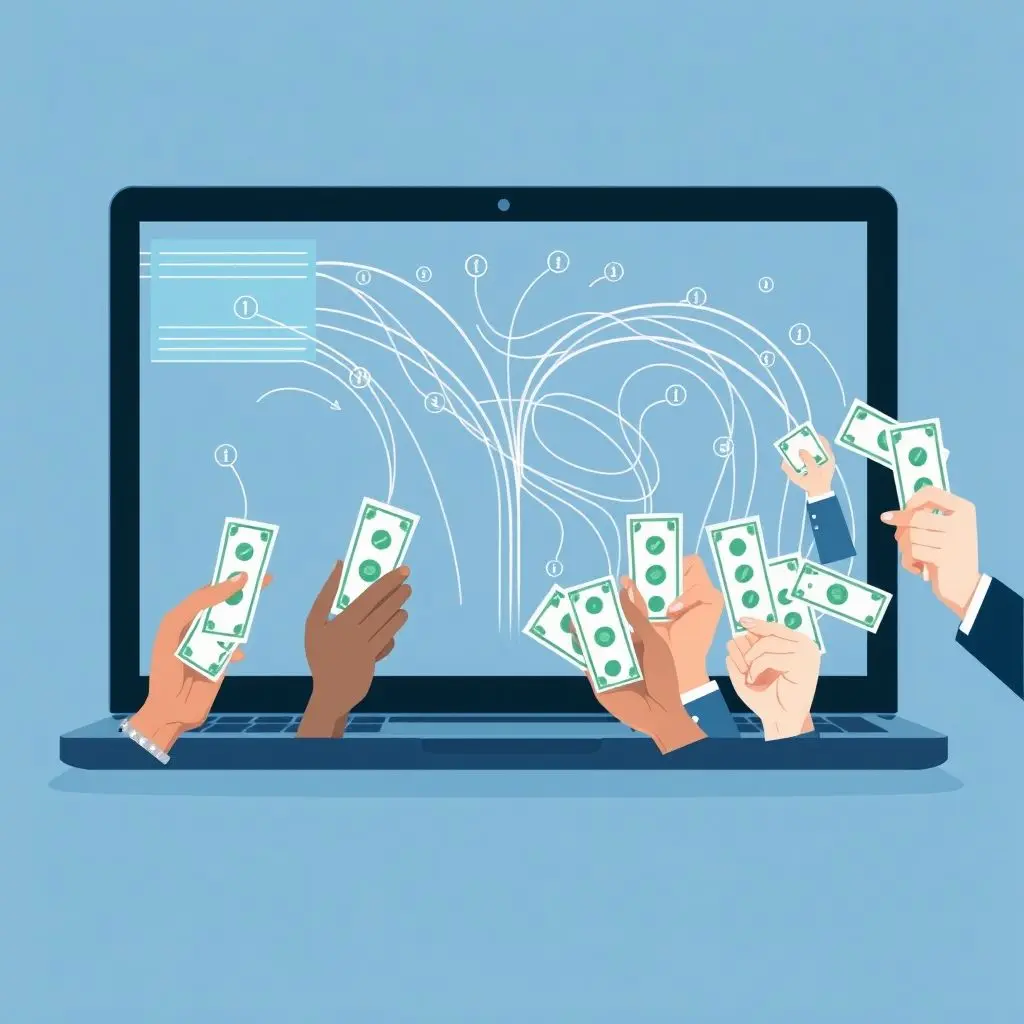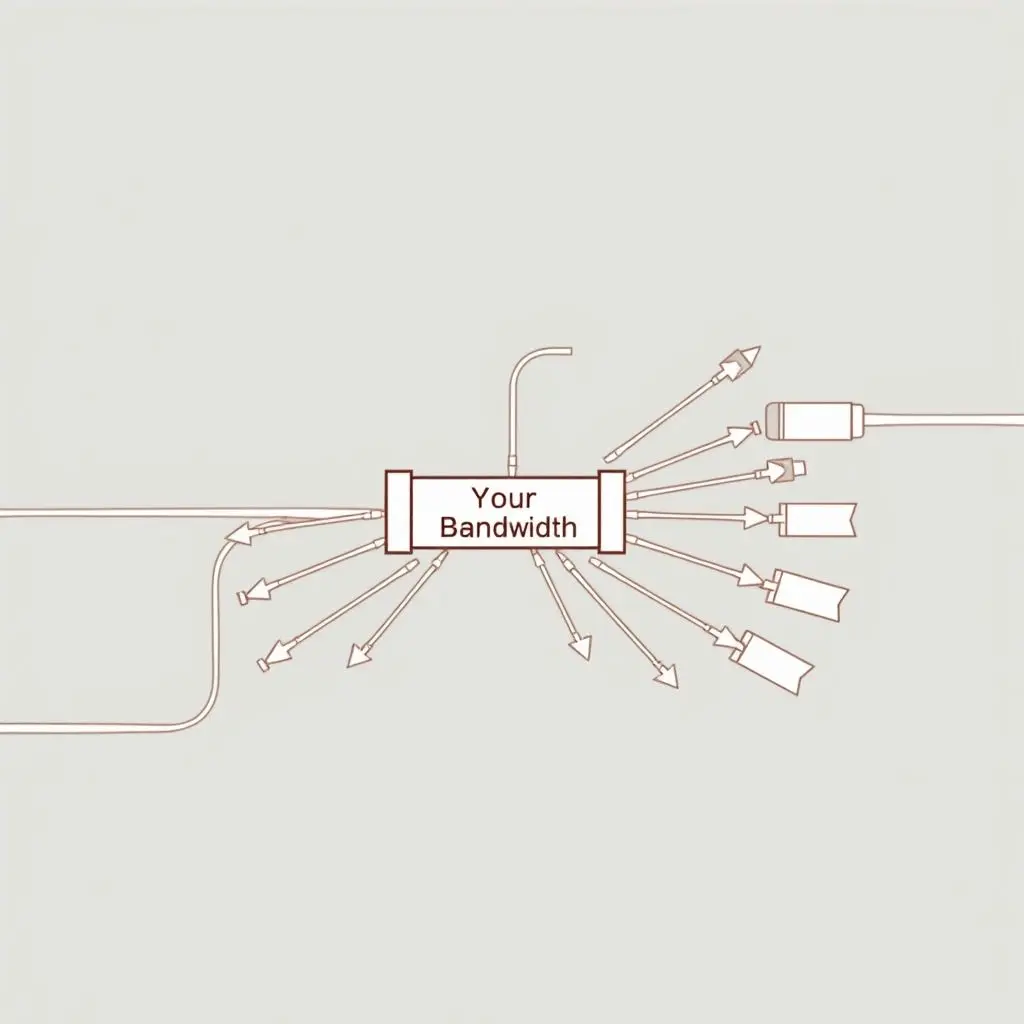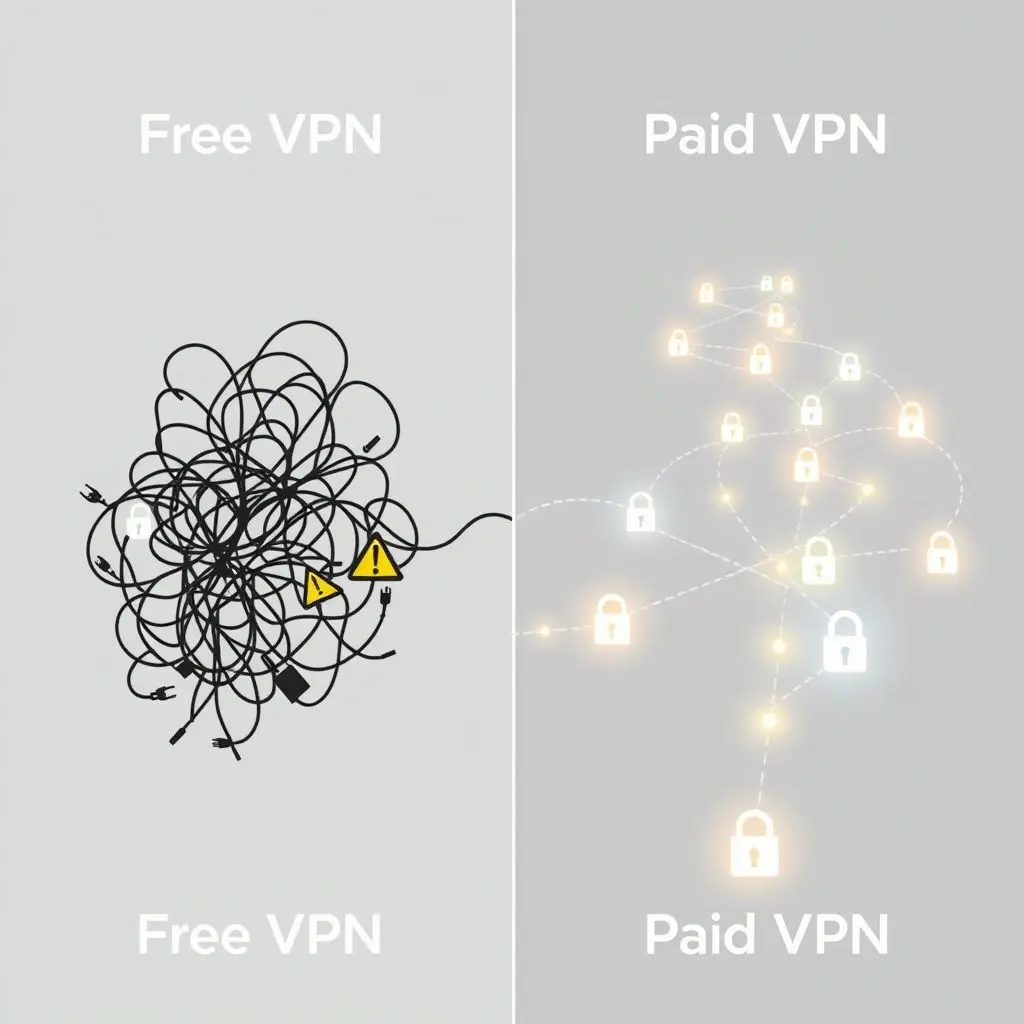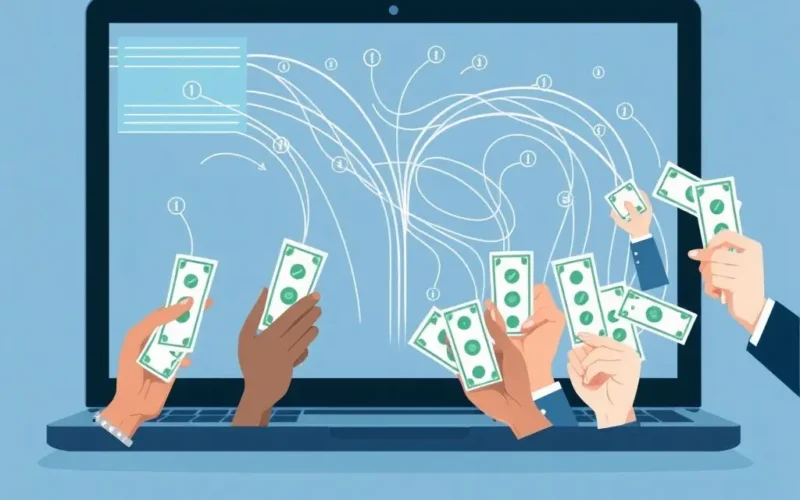The appeal is undeniable, isn’t it? A Virtual Private Network that promises online freedom, privacy, and security, all without costing a single penny. A ‘free VPN’ sounds like the ultimate digital freebie – unlimited access to blocked content, anonymous browsing, protection from prying eyes, and zero impact on your wallet. It feels like you’ve found a secret loophole in the digital world.
But let’s pump the brakes for a moment. In a world where robust cybersecurity tools and services typically come with a price tag, that offer of ‘free’ should immediately raise a crucial question: How, exactly, does a free VPN provider keep the lights on, maintain servers, develop software, and pay staff, if they’re not charging you?
The answer, as many quickly learn, isn’t usually rooted in altruism. It’s often a complex web of compromises where you become the product, and your data, privacy, and even security are the price you unknowingly pay. Think of it like that old, wise saying: If you’re not paying for the product, you *are* the product.
For a quick, punchy heads-up on this very topic, we put together a little something visual. Check it out here:
Table of Contents
Understanding the ‘Free’ Business Model: Where the Risks Begin
So, how do free VPNs generate revenue? By necessity, their methods often involve activities that directly undermine the very reasons people use a VPN in the first place – privacy and security. Here are some of the most common (and concerning) practices:
1. Data Collection and Selling Your Information
This is arguably the most significant risk. Reputable, paid VPNs adhere to strict ‘no-log’ policies, meaning they don’t record your online activities (websites visited, files downloaded, etc.). Free VPNs, however, often engage in extensive logging. They might track your browsing habits, connection timestamps, bandwidth usage, and even your device information and original IP address.
Why? Because this data is valuable. They can aggregate this information and sell it to third parties, most commonly advertisers or data brokers. This completely defeats the purpose of using a VPN for anonymity or privacy. Instead of your ISP or government potentially seeing your activity (depending on jurisdiction), a private, for-profit company you know little about is collecting and selling it.

2. Injecting Ads and Tracking
Advertising is a primary revenue stream. This isn’t just banner ads on their app or website; free VPNs are notorious for injecting intrusive advertisements directly into the websites you visit while connected. This practice not only ruins your browsing experience but can also pose security risks.
These injected ads might come from dubious networks and could potentially lead to:
- Malvertising: Ads containing malicious code that exploits vulnerabilities in your browser or device.
- Tracking Cookies and Scripts: Even more ways for third parties to track your online movements across different sites.
- Phishing Attempts: Deceptive ads designed to trick you into revealing personal information.
3. Bundling Malware, Adware, or Spyware
In more extreme cases, some free VPN applications have been found to bundle unwanted software, including adware (bombarding you with ads), spyware (monitoring your activity), or even more harmful malware. Installing a free VPN could inadvertently infect your device, leading to data theft, performance issues, and further security compromises.
Research has shown instances where free VPN apps requested excessive permissions on mobile devices, far beyond what’s necessary for a VPN to function, indicating potential misuse of device resources or data.
4. Using Your Idle Bandwidth
Some free VPNs operate using a peer-to-peer (P2P) model, similar to applications like Hola VPN (which faced significant backlash for this). In this model, you allow other users on the network to route their traffic through your device’s internet connection when you’re not actively using your full bandwidth. In return, you get to route your traffic through others’ connections.
The danger here is that you have no control over what traffic passes through your IP address. This could include illegal downloads, spamming, or other malicious activities. If such activity is traced back to your IP address, you could face legal repercussions, completely unaware of what happened.

Beyond Privacy: Performance and User Experience Woes
Even if you were willing to overlook the privacy and security risks (which we strongly advise against!), free VPNs typically offer a frustrating user experience:
- Painfully Slow Speeds: Free services have limited server infrastructure and are often overcrowded with users. This leads to severe bandwidth throttling, making streaming, downloading, or even basic browsing incredibly slow.
- Data Caps and Bandwidth Limits: Many free VPNs impose strict data limits per day or month, cutting you off once you reach them.
- Limited Server Locations: You’ll have far fewer server options compared to paid services, making it harder to access content from specific regions or find a fast, uncongested server.
- Frequent Disconnections: Unreliable connections are common, dropping you off the VPN unexpectedly and potentially exposing your real IP address and traffic.
- Constant Ads and Pop-ups: As mentioned earlier, intrusive advertising isn’t just a security risk; it’s a major annoyance that degrades usability.
Free vs. Paid: A Stark Contrast
Comparing a free VPN to a reputable paid service is like comparing a bicycle with square wheels to a high-performance car. Paid VPNs invest heavily in their infrastructure, security features, and privacy policies because their business model relies on customer trust and subscription fees. They offer:
- Strict, audited no-log policies.
- Strong encryption standards (like AES-256).
- Faster speeds and unlimited bandwidth.
- Vast networks of servers in numerous locations.
- Advanced features (kill switches, split tunneling, obfuscation).
- Dedicated customer support.
- No intrusive ads or bundled malware.

When Might a Free VPN Ever Be Considered? (Handle with Extreme Caution)
In almost all scenarios involving sensitive data, personal accounts, or any expectation of privacy or security, a free VPN is unsuitable and dangerous. However, if you absolutely must use one for a *very* limited, non-sensitive purpose (like briefly accessing a geo-restricted, non-private public website) and understand and accept the inherent risks, choose one that is a limited free tier of a *known, reputable* paid VPN provider. These often have data caps or speed limits but are less likely to engage in the most egregious data collection or malware practices compared to standalone free services.
Even then, proceed with extreme caution and never use it for banking, email, social media, or any login-required site.
Safeguarding Your Digital Footprint
Protecting your online privacy and security in today’s digital landscape is crucial. While the idea of a free solution is tempting, the potential costs in terms of compromised data, security risks, and frustrating performance are simply too high for free VPNs.
Instead of risking your digital life, consider investing in a reputable, paid VPN service. Research providers, read independent reviews, and choose one with a strong privacy policy, robust security features, and good performance. Remember that a VPN is just one layer of online security; maintaining strong passwords, using antivirus software, and being cautious about what you click are also vital practices.
Common Queries Answered
Are all free VPNs dangerous?
While not *all* free VPNs might be actively malicious, the vast majority engage in practices that compromise your privacy and security (like data logging and selling, or injecting ads) to cover their costs. The limited free tiers offered by reputable paid providers are generally safer regarding malware but still come with significant limitations like data caps and speed throttling.
Can a free VPN protect me from my ISP?
A VPN, in theory, encrypts your traffic from your device to the VPN server, preventing your ISP from seeing the content of your traffic or the websites you visit. However, if a free VPN logs your activity and potentially your real IP, the provider themselves (or whoever they sell data to) could connect the activity back to you, making it less effective for privacy than a no-log paid VPN.
Will a free VPN make me completely anonymous online?
No VPN, free or paid, guarantees complete anonymity. While a good VPN hides your IP address and encrypts traffic, other factors like browser fingerprinting, cookies, tracking scripts, and your online behaviour can still be used to identify you. Free VPNs are particularly bad for anonymity due to logging and potential data selling.
Why is my free VPN so slow?
Free VPN providers have limited resources (servers, bandwidth) and try to accommodate a large number of users. This leads to server overcrowding and bandwidth throttling, severely impacting your speed. Paid services have more extensive infrastructure to handle user load.
What should I look for in a paid VPN?
Key features include a strict no-log policy (preferably audited), strong encryption (AES-256), a kill switch, a wide range of server locations, good speed performance, compatibility with your devices, and reliable customer support.
Making an Informed Choice
Ultimately, the allure of ‘free’ can be powerful, but when it comes to your online security and privacy, it’s a gamble not worth taking. Understanding the hidden mechanisms by which free VPNs operate reveals that they are often trading your most valuable digital assets – your data and your peace of mind – for their operational costs. Prioritizing your digital safety means making informed decisions about the tools you use to protect yourself online. Don’t let the promise of zero cost lead to maximum risk.





